Australian hospitality workers, where the bloody hell are you?
Holidaymakers everywhere but not enough hospitality workers to fill the jobs. How did we get to this?
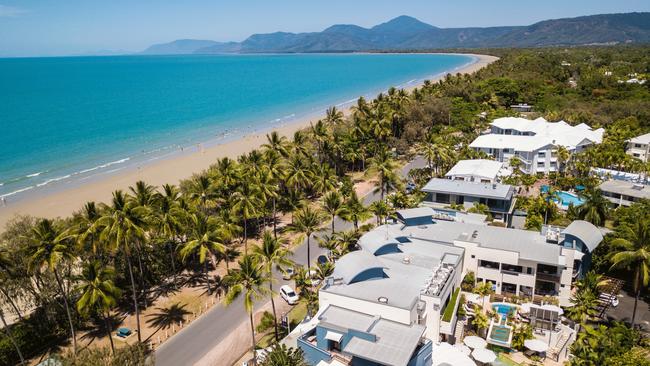
The hotel manager is ready for duty. In the airy foyer of his far north Queensland hotel, a palm-fringed resort opposite a palm-fringed beach, he’s chatting about his coming work day. His banter is relaxed and warm, as befits his role and his location, where the winter sun and tropical air are an alluring combination for domestic travellers. But look at his outfit, and consider his words, and it’s clear that something is amiss in paradise.
With its warm seas, spectacular scenery and access to the Great Barrier Reef, Palm Cove, like neighbouring Cairns and Port Douglas, is a dream destination. But the confluence of two unprecedented events is testing those toiling to keep that dream alive. “Everyone is tired,” Christian Lachemeier, general manager of the 168-unit Mantra Amphora, says as he tells of the multi-tasking that has become a necessity for significant portions of his industry. With closed international borders and strong domestic demand, critical staff shortages are seeing managers stepping in as cleaners and bar staff morphing into baristas.
On this midweek morning in late autumn, Lachemeier, dressed in work boots and shorts, is doubling as maintenance crew, unloading heavy bags from a contractor’s ute before a day of manual work at his waterfront resort. “It’s still the same job. It’s just more intense because you’re pulling in all directions,” he says of the labour scarcities besetting the industry – at the very point at which many are also welcoming record numbers of domestic guests. “Your exhaustion levels are definitely different because there are no ups and downs anymore.”
It’s a similar story across the country, where “staff wanted’’ signs appear everywhere from restaurants to hotels, tours to airports, creating a potential bonanza for workers. People who were struggling to get an interview just months ago are being offered a smorgasbord of incentives – airfares, accommodation, meals, higher wages, even refer-a-friend success fees of $250 a head – but so far with limited success. “We’re so busy because we’ve locked everyone into Australia, but we’ve locked all the [foreign] workers out,” says David Allen, a NSW south coast publican who has been unable to find a head chef for four months, despite offering $80,000 for a job that usually pays $60,000.
Operators everywhere aren’t just overworked; some are on the cusp of being overwhelmed. Only days out from the start of the ski season, the big question facing an increasingly stretched tourism and hospitality sector is: how long can this be sustained?
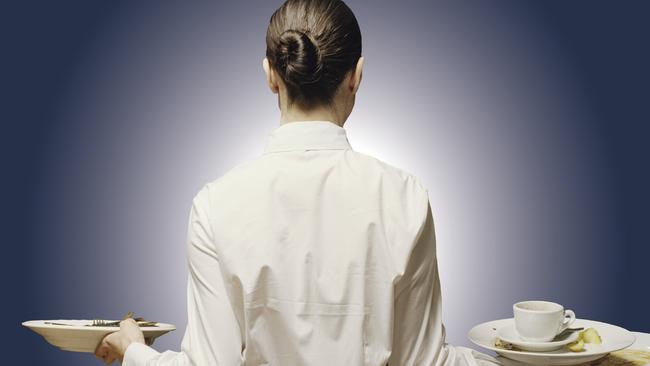
It’s an economic jumble. Rental cars have become coveted commodities. Restaurant bookings are as rare as experienced sommeliers. Booming demand for caravan sales is being hampered by a lack of supply. Some hotels have gone into hibernation; others are locking off rooms because they lack sufficient cleaners. Despite fears a year ago of economic disaster, job vacancies are at record highs, while the employment website seek.com.au reports applications per ad are at their lowest level in almost a decade. Demand for workers in regional areas is at an all-time peak, with more than 66,000 positions waiting to be filled, even more than during the mining boom a decade ago. Yet a scarcity of local accommodation in some areas is making it even harder to lure potential employees who can’t find anywhere to live. Attracting workers is also being hampered by uncertainty – a situation not helped by snap lockdowns, such as those just seen in Victoria, which can see staff stood down at a moment’s notice or mass cancellations from holidaymakers elsewhere.
For Australia’s tourism and hospitality industries, all but closed to the rest of the world, 2021 is proving to be an extraordinary year. “We’ve never had worse employment conditions than what we have now,” says Dean Long, CEO of the Accommodation Association. Some 78 per cent of Australian hotels are experiencing a skilled labour shortage, and that’s not including the countless non-skilled vacancies urgently awaiting applicants. “Pretty much every hotel in the country would have some level of closure due to staff shortages,” he says. In late May, there were more than 8000 vacancies for chefs alone.
Close to 120 jobs are waiting to be filled around Ayers Rock Resort, where, with two hotels and several restaurants closed for renovations, availability is limited till mid-September. One of those hotels, Desert Gardens Hotel, is finally reopening later this month after a prolonged closure.
In the national capital, a five-star hotel is capping rooms at 82 per cent, “and the general manager is serving people in the morning,” says Stephen Ferguson, national CEO of the Australian Hotels Association. In the centre of Australia, operators of the remote Ti Tree Roadhouse, usually reliant on backpackers to fill casual spots, are desperate for counter staff. “We’ve got a pack of school kids right now in the front and I have only got one person serving,” says manager Alice Snape, whose combined workplace, with its pub, shop, fuel, accommodation and meals service, is a vital stop for travellers along the 2800km Stuart Highway that bisects the continent. The roadhouse is now closing early at 8.30pm, losing 90 minutes of trade a day, because it’s down three workers.
Two thousand kilometres away at Cairns airport there are multiple indicators of the conundrums facing one of the nation’s key sectors. The domestic arrivals hall is bustling on a midweek morning in early May, traditionally a quieter time. Assuming you are able to hire a vehicle – a fire sale during the lockdown last year has sent rates for remaining cars rocketing to a not uncommon $250 a day – within minutes you will arrive at the heart of Cairns, an international favourite for its proximity to the Great Barrier Reef and the Daintree. Until recently, scores of sea-facing hotels and dozens of reef boats would attract millions of overseas visitors each year – more than Tasmania, South Australia and the NT combined. Then the pandemic cast its pall. With some local businesses dependent on foreign arrivals for up to 90 per cent of their work, the absence of outsiders in an area used to generating $3 million a day from tourism was so profound that some hotels closed temporarily.
Recently, though, life has sweetened. Domestic arrivals have just returned to pre-Covid volumes, the last of the international chain hotels has come out of hibernation and, after an especially buoyant April, occupancy rates are nudging 50 per cent for the year, a more impressive figure given the enforced absence of foreigners. But popularity and practicality do not always mesh. “Every employer we talk to is looking for people,” says Mark Olsen, CEO of Tourism Tropical North Queensland, citing a long wanted list that spans reef guides and ships masters to house keepers and drivers. “We’ve got a huge fleet of buses and we must have had a huge fleet of bus drivers, but they’ve gone. Trying to find them is incredibly challenging.”
Around town signs of the stretch are subtle but numerous: minimal hotel staff serving breakfast, multiple restaurants no longer open nightly, lunch services curtailed, some eateries temporarily closed, even as increasing numbers of visitors arrive. As Olsen says: “You have demand. You can’t turn the [labour] supply tap on; there’s nobody there.”
Drive north from Cairns and things become better but also worse. Palm Cove is a tranquil seafront village with an enticing strip of shaded sand and a long jetty at one end. With its endless tracts of palms-beside-sea, it looks like an improbable postcard, although today it’s not entirely perfect: at the southern end of the beach, three vacant restaurants are testament to the uncertainty the past year has wrought, while arrivals at the unoccupied office that previously housed an Avis branch are directed to a central reservations number. But elsewhere business is up. At the seafront Melaleuca Resort, the onsite managers happily report the best April in 14 years. A few doors away, the remaining car rental agency has doubled its fleet since September. “We only bought as many as we could. There were no more to buy,” says Palm Cove Car Rentals’ Richard Hewitson.
“We’ve had the best month ever, and we’re not alone. Everyone is trading off the wall,” says one restaurateur. Yet here, too, staffing shortages have become acute. “We had an apprentice come and have a trial. The chef said, ‘When would you like to start?’ And he said, ‘I’ve got three other trials, I’ll let you know’. He was basically interviewing us.”
With a core staff topped up by seasonal backpackers, the eatery has rarely been short of casual workers. Recently, however, the owners, who have hardly had a day off in months, have spent $2000 advertising for multiple jobs, some of which still aren’t filled. “It’s physically draining and it’s also mentally draining,” says the restaurateur. “We’re interviewing and trialling people who in previous years we would have got their resume and never even considered them… Now, they’ve got half a brain, let’s talk to them.” Yet some who are new to the industry have proved to be a revelation.
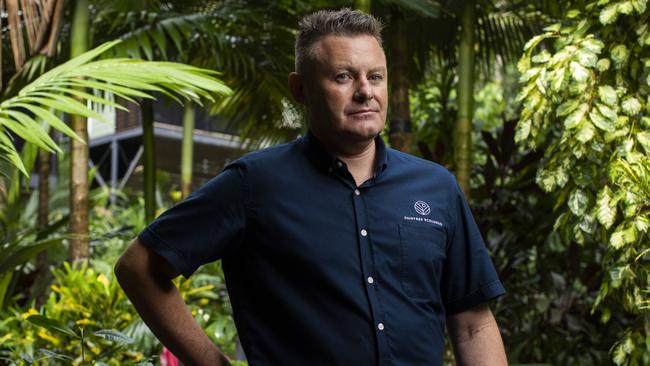
Steven Watkins spent 12 years as an international flight attendant before the world closed to him. He returned to Brisbane early last year and, on JobKeeper, decided to sit out the pandemic in Far North Queensland. Keen to resume work, his years of experience seemed irrelevant as he applied for 20 jobs, including “cleaning up animal waste – dog poo – at a vet’s office in Cairns. I didn’t even get a call back”.
In October he received his first and only reply, and began cleaning hotel rooms. “I never minded what I did. But a lot of colleagues said, ‘Why would you do that?’” After seven weeks, he was offered a role at the Daintree Ecolodge, a boutique accommodation for just 32 guests, where his tailor-made position came with a job description indicative of his changing industry. “Technically I was employed to be an all-rounder,” says Watkins, 44, whose tasks involve greeting arrivals, serving drinks, rostering and recruitment. (The four positions he is still trying to fill come with on-site accommodation, which was previously optional, two meals a day, rather than the discounted meals previously available, and higher casual pay rates.) Today he is checking in guests. Tomorrow, because of staff absences, he will be in housekeeping.
There are other changes to his recent circumstances. Over the past six months his pay (which was less than he received as a flight attendant) has increased by about 15 per cent. Compared to his struggle for employment just a few months ago, “now if I was applying for a job I could get one almost anywhere up here”.
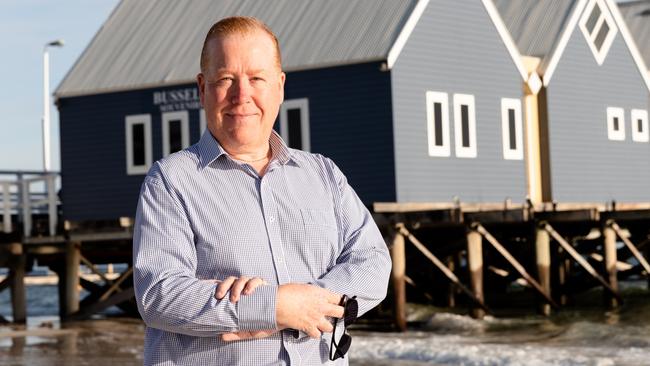
On the other side of the country, former parliamentarian Brian Greig applied for more than 100 jobs over 18 months. He and his partner had both been retrenched, so they had sold their home, left Perth after 30 years and moved into an investment property in Busselton. Neither of them had an income. “I’ve had the extraordinary experience of being thrown into the Senate at 33 with the balance of power at day one. Once you’ve been there you feel like you can do anything,” says the former Australian Democrats interim leader, who spent six years in Canberra until 2004. “I’m on the wrong side of 50 and being an ex-parliamentarian is a curse. If you apply for fairly ordinary jobs people look at your CV and they don’t articulate it but what they are thinking is, ‘He wouldn’t be happy here’.”
Hospitality is one of Busselton’s main industries so Greig applied for countless jobs in restaurants and cafes. He received just three replies and no interviews. Then, in late September, he emailed a microbrewery that was looking for 70 people. “Within 15 minutes they phoned me and said, ‘We are having a recruitment drive tomorrow’.” The following day he had to complete a questionnaire. Had he worked in hospitality? Could he carry a tray of more than six pints? Could he manage three plates at a time? He answered no each time. And still, without even having to show his CV, he was hired. Since October, he has been working as a casual five days a week pouring beer, carrying drinks and taking food orders. “It was such a joy. I remember getting my first pay cheque… It was the first money that had gone into my account in two years.” And all because of enforced change. As Greig – the recently named in-house “Legend of the Week” – says: “They had to lower the bar to take anyone.”
How did we get here? Border closures and the loss of overseas talent are largely responsible. “The whole industry pressed go at the same time. We all need the same people at the same time and there are not enough people in Australia,” says Matt Cameron-Smith, CEO of Voyages Indigenous Tourism Australia, which runs Ayers Rock Resort. But there have been concerns about a shrinking work pool for years. “We didn’t have one butterfly flap its wings in South America,” says the AHA’s Stephen Ferguson. “All these things have now come to cascade: our international workers have gone offshore, Australian workers are saying, ‘This industry is too lumpy, I’m going to work somewhere else’, and a dearth of people are wanting to join our industry.”
Many holiday destinations rely on local workers for much of the year, boosted by transient backpackers and foreign students at busier times. In January 2020, 91,250 international students arrived in Australia. This January, there were just 360. Their absence is being felt as deeply as the lack of temporary visa holders, hundreds of thousands of whom left the country at the start of Covid. When tourism began to dry up, the hospitality industry was deeply uncertain. “Many people who were let go last year have now found other careers in other areas. We’ve lost lifetime hospitality workers to industries that people are seeing as more stable,” says the Accommodation Association’s Dean Long.
There have been ongoing concerns about the downturn in the number of Australians wanting to enter the food industry. Between 2016 and 2020 there was a 43 per cent drop in the number of Australians enrolling as food trade apprentices. “It could be pay or conditions. We just think there’s a reluctance of people to enter the kitchen trade,” says Ferguson. “Everyone today talks about STEM, and they are all talking about the jobs of tomorrow,” he adds, “but there is not much that goes into the jobs of today.”
But with unemployment at 5.5 per cent, some believe that a degree of apathy is involved with the lack of uptake of non-skilled positions. “No one is putting their hands up to clean rooms,” says Alex Bruce, CEO of Hospitality NT. He works in a region where some venues are usually 50 per cent overseas-staffed. In Far North Queensland, where there are more than 1200 tourism and hospitality jobs vacancies north from Cardwell (between Townsville and Cairns), local tourism boss Mark Olsen agrees. “Aussies don’t want to jump into these sorts of jobs: housekeeping, food and beverage, events.”
For businesses trying to claw back the losses of the past 12 months – revenue has dropped 40 per cent in Melbourne and Sydney hotels over the past year, and forward bookings for capital cities are nowhere as healthy as they were in 2019, says Long – operating in this tricky environment is producing some creative solutions, many of which might not be obvious to customers. Some are begging staff to stay on a few more hours, with the lure of higher pay. Others have reduced operating hours. In the absence of sufficient personnel for alternative shifts, some restaurants have closed and lost a day’s takings just so that staff can have some down time.
For an awards night at Darwin’s casino, where multiple restaurants are yet to reopen or are operating on limited hours, workers had to be assembled from venues across town. “People are sharing resources across the network: chefs, hospitality staff,” says Alex Bruce. While this has also led to poaching, “at the moment it’s a positive that people are trying to share… But these are workers that can only work so long.”
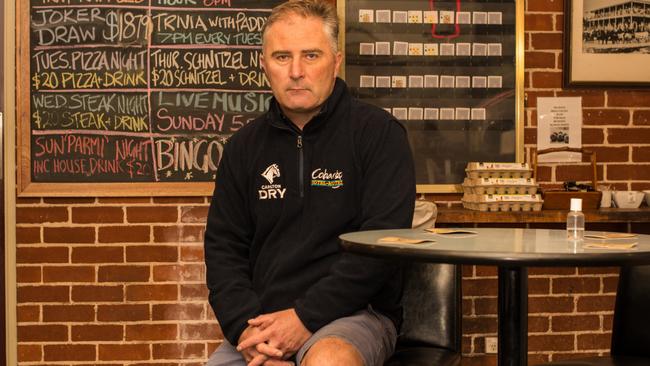
At the centre of this upheaval, life has become frenetic. “We’re getting slammed,” says publican David Allen of the personal cost of so much mismatched supply and demand. “You don’t have a life… It’s a good thing, because business has increased by two or three times, but it’s unsustainable. We don’t have the workers. You’re tapping yourself every day if someone is sick or they want a day off.”
As licensee of the Cobargo Hotel Motel, 400km south of Sydney, Allen is used to hard work. On New Year’s Eve 2019, a firestorm ravaged his south coast town, destroying much of the historic main street, killing four locals and traumatising the community of 800. “After the fires we got really busy, really horrendously busy because a lot of the main street had got knocked out so the burden fell on us to feed everyone and our rooms were booked out.” Then came the pandemic and Allen became even more taxed, providing takeaways while still short of workers, including chefs. Soon the number of meals he was serving weekly doubled from 600 to 1200. But scaling up so quickly was difficult. “We don’t live in Sydney. We can’t just source all the workers we need,” says Allen, whose 50 or 60-hour weeks are now regularly closer to 80 hours.
With the property’s hotel rooms booked solid, his staff of 25 is down around five workers, and even within his existing complement “we’ve got a lot of bodies here but not a lot of skill”. Because of the communal role the property plays as a hub for locals, it’s not feasible to close for a day’s rest. So he just keeps working. “We don’t have the capacity to deal with what’s coming at us,” he says. “I can just see this Christmas is going to be absolutely horrendous… They’ll come down here and they can’t get bookings and the quality of service won’t be there. Yes, you might make some extra money. But at what cost? How long can you keep doing that?”
It’s a question that’s increasingly troubling operators. “We’re going into our absolute peak period and it’s [already] hard at the moment,” says Far North Queensland tourism boss Mark Olsen. And it’s about to get worse. In late June, the nation’s three most populous states – NSW, Victoria and Queensland – will have school holidays at the same time. “Employers are getting worried,” says Olsen of his turf in Far North Queensland. “They’re worried about burning their staff out.”
As one local restaurateur says: “In the past I could push them a bit. You can’t do it now. You’re scared they might leave you. They could turn around and say, ‘Forget it, I can get a job somewhere with less pressure.’ So you’re at their mercy.”
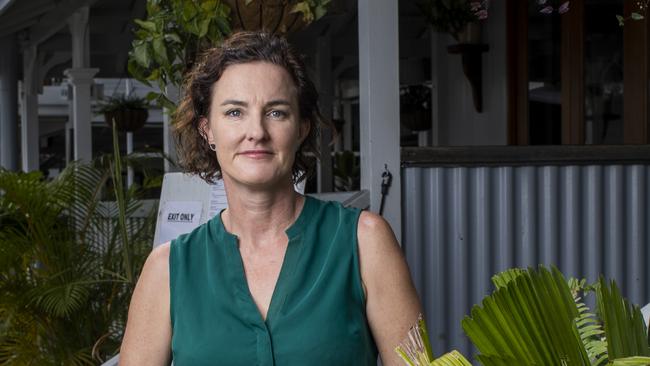
It’s a circular problem and no one, it seems, has apermanent solution until border restrictions are relaxed for foreign workers. “You just want to hire someone who can start tomorrow,” says the AHA’s Stephen Ferguson. With borders likely to remain shut for many months, other efforts – including $1500 state government incentives to work in parts of Queensland – are piecemeal.
“We’ve found ourselves in this ridiculous situation that’s the complete opposite of where we were a year ago,” says Tara Bennett, CEO of Tourism Port Douglas Daintree. In this visitor-dependent area, where four out of five dollars are earned from tourism, Bennett has been mulling over ways to sustain standards when there are just not enough people to maintain them. (One local business alone has 50 job vacancies.)
She is looking at setting up a food van precinct to alleviate the strain on food outlets during school holidays. And, following an overwhelming Easter when many visitors were disappointed at the shortage of spots on reef boats and in restaurants, she has helped produce a pre-arrival letter for visitors, warning them to book not just accommodation in advance but also car hire, tours and restaurants. “We also ask you to be prepared that from time to time, the excellent service that our region is known for might take a little longer than we would normally consider ideal,” the letter says.
“This is the time to make money,” Bennett acknowledges. “[But] it’s so unfortunate for tourism because for the last year we felt like a whining industry because we’ve had to advocate for the changes we faced. Now we’ve been given everything we hoped for. But with that has come a monumental challenge.”
And no one knows what comes next. “The irony of the situation is incredible… It’s better than we could have hoped for. But because of the labour shortage it’s much harder to execute,” says Bennett. “I grin – and it’s so bittersweet.”


To join the conversation, please log in. Don't have an account? Register
Join the conversation, you are commenting as Logout